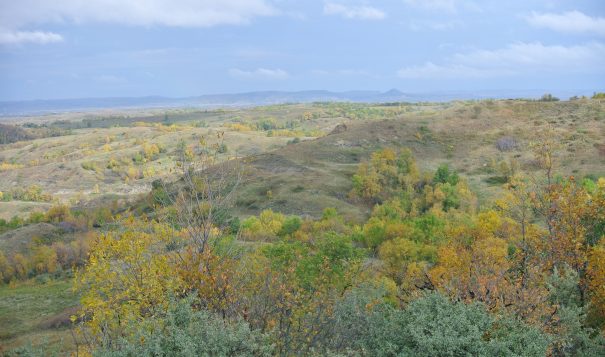Press Release: Obama Administration Exceeds Goal to Restore 500,000 Acres of Tribal Homelands

Administration makes good on promise to place at least one half million acres of land into trust for tribal nations, working to make tribal communities whole again
WASHINGTON – U.S. Secretary of the Interior Sally Jewell and Principal Deputy Assistant Secretary – Indian Affairs Lawrence S. “Larry” Roberts today announced that the Obama Administration has exceeded its goal of placing half a million acres of tribal homelands into trust for federally recognized tribes.
“Restoring tribal homelands has been a pillar of President Obama’s commitment to support tribal self-determination and self-governance, empowering tribal leaders to build stronger, more resilient communities,” Secretary Jewell said. “The Administration broke the logjam on trust land applications in 2009 and has worked steadily, collaboratively and effectively to restore Native lands that will help strengthen tribal economies and make their nations whole again.”
The 500,000 acre goal was surpassed Friday when President Obama signed into law the bipartisan Nevada Native Nations Lands Act, which conveys more than 71,000 acres of Bureau of Land Management and U.S. Forest Service lands to the U.S. Department of the Interior to place into federal trust status for six Nevada tribes. The tribes will use their newly acquired lands to expand housing, provide economic development opportunities and promote cultural activities for and by their tribal members.
“Secretary Jewell announced early on a goal of restoring 500,000 acres to Indian Country by the end of the Obama Administration and we view this as a meaningful start to correcting the enormous loss of tribal homelands Indian Country has endured,” Principal Deputy Assistant Secretary Roberts told tribal leaders at the opening session of the National Congress of American Indians’ 73rd Annual Convention in Phoenix, AZ earlier this week.
Roberts further said, “I want to thank the Bureau of Indian Affairs Director Mike Black for his implementation of this important policy, the Regional Directors and their staff for their hard work to make it a reality. While our fee-to-trust process remains rigorous and tribes must expend precious resources to address the Carcieri decision, tribes continue to prioritize the return of their homelands, investing their own resources to ensure a land base for future generations.”
Restoring tribal homelands has been a key part of the Obama Administration’s Indian Country priorities, representing a shift from historic federal policy that previously resulted in tribes losing millions of acres of land across the U.S. over several hundred years. Since 2009, the Bureau of Indian Affairs has processed 2,265 individual trust applications and restored more than 542,000 acres of land into trust. And in partnership with tribes and agency staff at all levels, Indian Affairs continues to process additional applications for land into trust.
As part of President Obama’s pledge to work nation-to-nation with tribal leaders to strengthen their communities and build their economies, the Administration also has overhauled antiquated leasing regulations to provide tribes greater control over their homelands and issued new regulations to allow the Interior Department to accept land into trust for federally recognized Alaska tribes, thereby advancing tribal sovereignty and closing a long-standing gap that had not extended this eligibility to Alaska Natives.
The Secretary of the Interior is authorized by the Indian Reorganization Act of 1934 to acquire land into trust for federally recognized tribes. Lands held in federal Indian trust status, which cannot be sold, alienated, or transferred to non-Indians or non-Natives, benefit their American Indian and Alaska Native tribal owners through federal programs for business development, housing, and environmental and cultural protection. Typical uses of trust land include governmental operations, cultural activities, agricultural/forestry activities, housing, economic development, social and community services, and health care and educational facilities.
